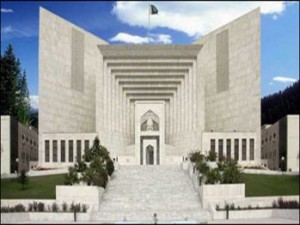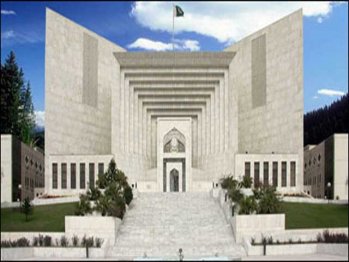
The vitriolic exchanges between a US businessman of Pakistan origin, Mansoor Ijaz and Pakistan’s former ambassador to the US, Hussain Haqqani – which have played out as infotainment in Pakistan’s lively television channels – are tell-tale signs of a civilian government in trouble.
The incident known as `memo gate’ unfolded when a secret American mission killed Al Qaeda’s most wanted leader Osama Bin Laden in Abbotabad, Pakistan in May 2011. Six months later, ambassador Haqqani resigned – in what can only be described as collateral damage from the covert mission.
Shortly after the incident in which US Navy seals had intruded into Pakistan’s air space without clearance, Ijaz reported that Haqqani funneled a memo through him to the Pentagon. In it, the journalist turned ambassador – negotiating between warring intelligence agencies – allegedly solicited US assistance in preempting a coup against the Zardari government.
The confirmation by the former US national security adviser Gen. James Jones that Ijaz did pass on the memo through him to then serving Joint Chiefs of Staff, Admiral Mike Mullen, has deepened suspicions within Pakistan’s army about the role played by its government in Washington.
The Pakistani media has delved deep into why Haqqani – a well-connected emissary with good communication skills – needed a crutch to get his memo across to the Pentagon. The picture they draw is of an ambassador who relied on verbal messages to cover his tracks… leading back to his fragile government.
In Pakistan, shooting the messenger has had the intended effect of getting President Asif Zardari and prime minister, Yusuf Raza Gilani to distance themselves from their ambassador and deny that they solicited any help from Washington.
But the petition filed in the Supreme Court by Pakistan’s chief opposition politician, Nawaz Sharif for an investigation into `memo gate,’ and court orders to Haqqani to remain in the country till the matter is resolved, has implications for the PPP government.
Sharif’s petition not only names Zardari but also the Chief of Army Staff, Gen. Ashfaq Pervez Kiyani and the ISI chief Shuja Pasha. The basic question raised by the opposition leader is how the US flew over Pakistan air space to nab Bin Laden, without the knowledge of its government.
In Pakistan, `memo gate’ has struck at a time when President Zardari’s ill-health and sudden flight to Dubai has ignited rumors of an `in-house change.’ The PPP government’s flat denials have done little to assuage the uncertainty.
Separately, Pakistan’s former ambassador to the US has been asked to appear in a parliamentary approved commission set up to investigate the Abbotabad incident. That commission is scheduled to release its findings at the end of December.
The `memo gate’ scandal is only one more example of ebbing Pakistan US relations. These relations reached a critical point after last month’s incident in which NATO troops killed two dozen Pakistani soldiers at a border post of Afghanistan.
Since then, Pakistan’s evacuation of US troops from Shamsi air base, its blockade of NATO supplies, boycott of the Bonn conference and refusal to participate in the NATO investigation that killed its soldiers, signifies a shift in its strategy in the region.
Quite tellingly, Pakistan’s envoys were recently summoned from overseas to review the nation’s agreements with the US and its allies.
With Haqqani’s departure, President Zardari has nominated another former journalist and Benazir loyalist, Sherry Rehman as his successor. Rehman’s appointment has taken onlookers by surprise because of the differences she has had in the past with the Zardari government, and which had led to her resignation as federal information minister.
However, before Pakistan’s new ambassador can come to Washington, questions remain on how it will respond to gestures by the Obama administration for damage control on the NATO bombings – which have stopped short of a formal apology. The US reportedly awaits the results of the NATO investigation before making any further moves toward Pakistan.
Meanwhile, the Supreme Court’s investigation into the `memo gate’ scandal has the potential to further impact Pakistan’s ties with the US. More importantly, it holds the key for the PPP and future elected governments.


I’m sure Pakistan is more afraid of India than anything.But I don’t think they mean to accidentally give their country over to a militant Islamic faction piece by piece, which is what they are doing.